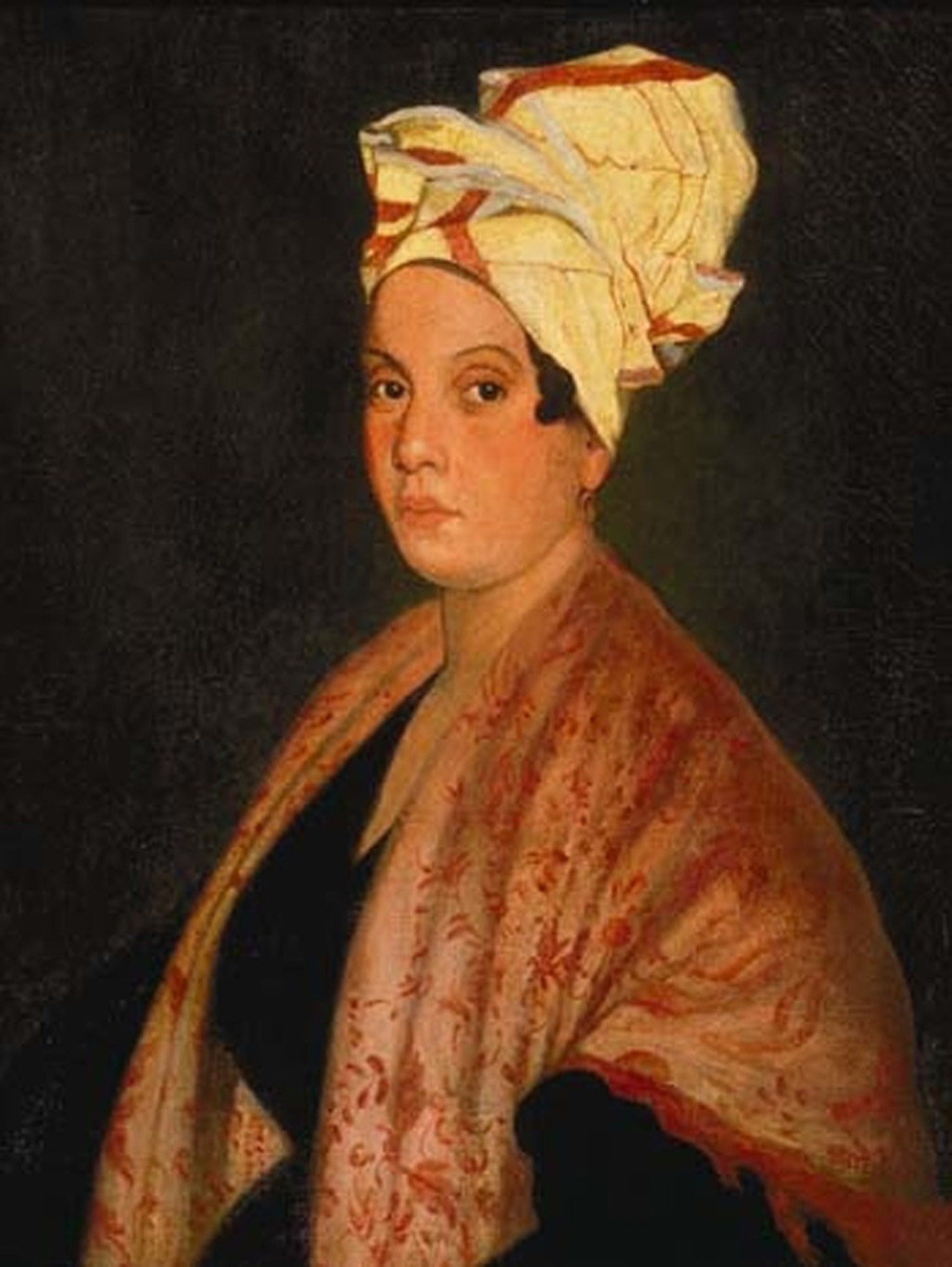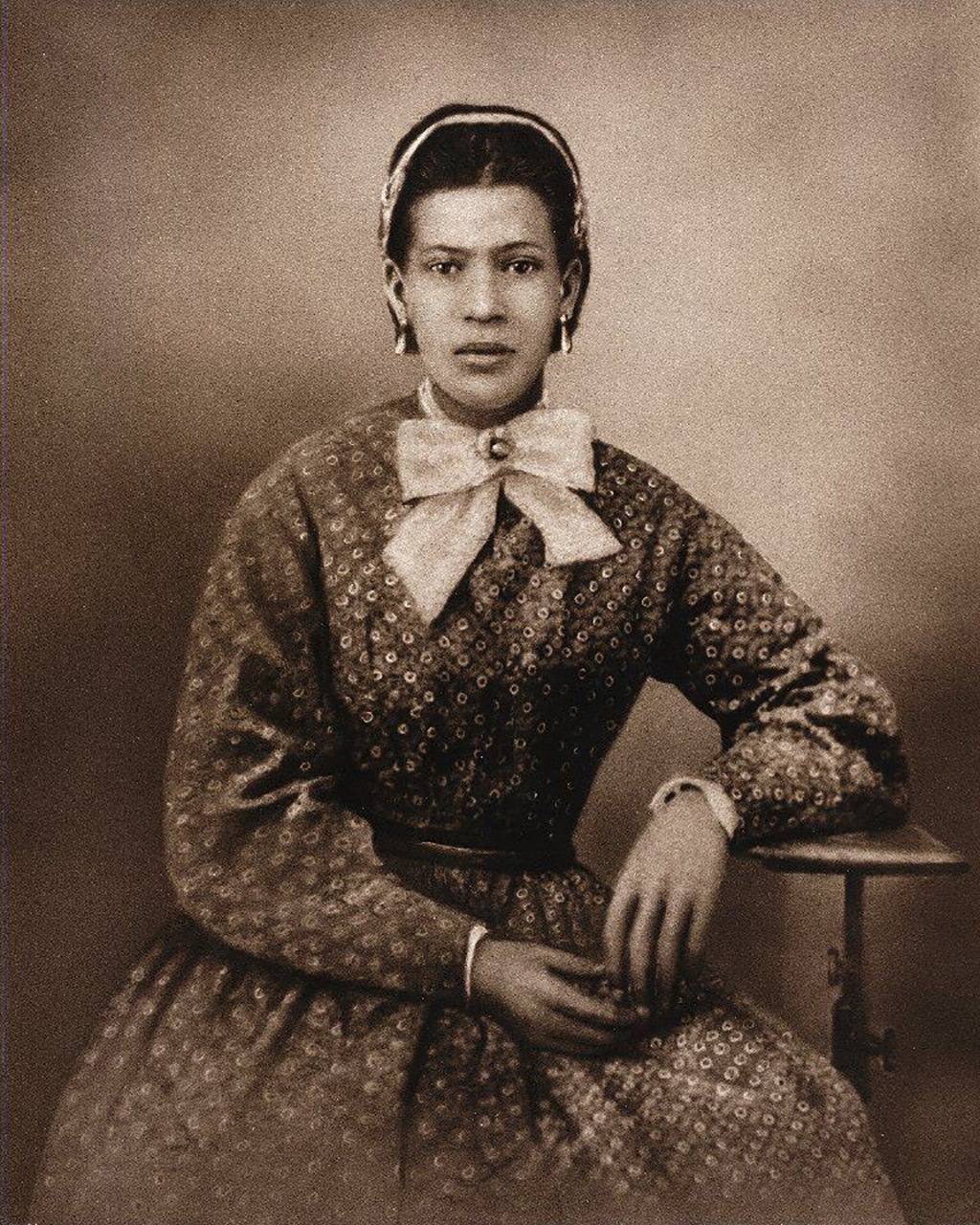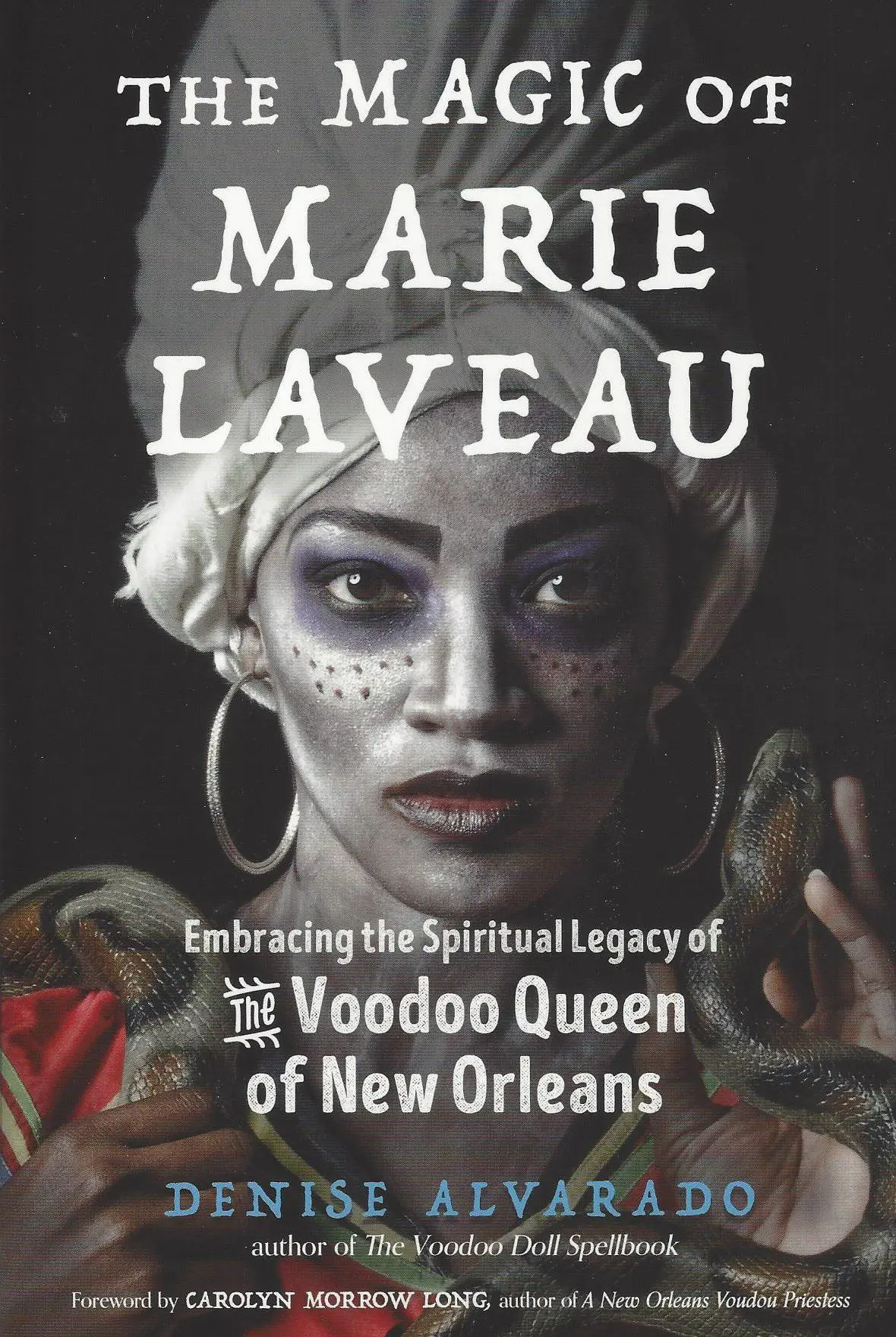Marie Laveau: New Orleans' Voodoo Queen & Cultural Icon
Table of Contents
- Unveiling the Life of Marie Laveau: A Biographical Journey
- Marie Laveau: Beyond the Myths and Legends
- Her Role as a Healer, Herbalist, and Community Activist
- The Syncretic Nature of New Orleans Voodoo
- Marie Laveau's Enduring Influence and Cultural Icon Status
- The Sacred Sites: Her Home and Tomb
- Debunking Misconceptions: Marie Laveau and Slave Ownership
- The Enduring Legacy of Marie Laveau
Unveiling the Life of Marie Laveau: A Biographical Journey
To truly understand the legendary **Marie Laveau**, one must first peel back the layers of myth to reveal the historical woman. Her life story is a testament to resilience, strategic intelligence, and an unwavering commitment to her community, all set against the vibrant and complex backdrop of 19th-century New Orleans.Early Life and Mysterious Origins
Marie Laveau was born on September 10, 1801, in the bustling French Quarter of New Orleans, Louisiana. Her parents were Marguerite Darcantel and Charles Laveaux, both of whom were free people of color. This status was significant in New Orleans, a city unique in the American South due to Spanish colonial law that allowed enslaved people to save money and purchase their freedom, leading to a sizable population of free people of color. Just six days after her birth, Marie Laveau was baptized by Père Antoine at St. Louis Cathedral, an early indication of the Catholic influence that would intertwine with her African spiritual practices. While her origins are not entirely "mysterious" in terms of birth records, the details of her early upbringing and how she first came to embrace and master Voodoo remain less clear, contributing to the mystique that surrounds her.Family, Marriages, and Children
Marie Laveau's personal life was as intricate as her public persona. She reportedly entered into a common-law marriage with Jacques Paris, a free man of color, in 1819. After his disappearance or death, she began a domestic partnership with Christophe Glapion, a wealthy white planter, with whom she had several children. This union lasted for many decades until Glapion's death in 1855. One of her daughters, Marie Laveau II, is particularly notable as she succeeded her mother in carrying on the Voodoo traditions and leadership role, ensuring the continuation of her mother's spiritual legacy. The exact number of her children varies in historical accounts, but it is clear that family played a significant role in her life and the perpetuation of her influence.The Rise of a Voodoo Queen
Marie Laveau’s ascent to the title of "Queen of the Voodoos" was not merely a matter of inheritance but a testament to her inherent charisma, shrewd intelligence, and deep understanding of human nature. She operated a beauty parlor, a strategic venture that allowed her to acquaint herself with a wide array of New Orleans' residents, from the city's elite to its working class. This position provided her with invaluable insights into the lives, secrets, and needs of the community. It was through these connections, combined with her spiritual prowess, that she assumed the leadership role of a multiracial religious community. She gave consultations, held elaborate ceremonies, and became the central figure for spiritual guidance and healing in New Orleans. Her reported powers included healing the sick, extending altruistic gifts to the poor, and overseeing spiritual rites, solidifying her reputation as a powerful and benevolent figure.Marie Laveau: Beyond the Myths and Legends
Few lives in African American history are surrounded by more myth and misinformation than the life of **Marie Laveau**. While she is best known today as the "legendary Creole Voodoo priestess of New Orleans," it is crucial to understand that her influence extended far beyond the sensationalized aspects of Voodoo. She was, in fact, a multi-faceted 19th-century figure: a hairdresser, a shrewd businesswoman, a confidante, and a pivotal community leader. Her work often involved practical assistance and social support, intertwining seamlessly with her spiritual guidance. This blend of the mundane and the mystical made her an exceptionally powerful and respected individual in a city where social structures were complex and often rigid.Her Role as a Healer, Herbalist, and Community Activist
Marie Laveau's legacy is deeply rooted in her profound commitment to her community, particularly the marginalized. She was renowned for her abilities as a healer and herbalist, often providing remedies and comfort to those whom conventional medicine or society had overlooked. Her reported powers included healing the sick, offering altruistic gifts to the poor, and providing spiritual solace. Beyond her Voodoo practices, she was a tireless community activist. She tended to the sick during yellow fever epidemics, visited prisoners, and reportedly financed charitable and benevolent organizations. This dedication to public service earned her immense respect and loyalty across all social strata in New Orleans. She used her influence not just for personal gain, but to genuinely help others, cementing her image as a compassionate yet formidable figure.The Syncretic Nature of New Orleans Voodoo
The Voodoo practiced by **Marie Laveau** was a unique blend, a testament to the resilience and adaptability of African spiritual traditions in the face of oppression. In the 18th and 19th centuries, when enslavers trafficked West African peoples to the Americas, they banned enslaved people from practicing their traditional religions. However, these traditions did not die; instead, they evolved, often incorporating elements of the dominant Catholic faith. Marie Laveau was a master of this syncretism, combining Catholic saints, rituals, and iconography with African deities (Loa), ancestral veneration, and herbal knowledge. This fusion allowed Voodoo to survive and flourish, providing a spiritual and cultural anchor for a displaced people. Although Voodoo was practiced in America long before her birth, Marie Laveau is considered by many as the founder of American Voodoo in its distinct New Orleans form, shaping its practices and public perception.Marie Laveau's Enduring Influence and Cultural Icon Status
Marie Laveau's impact on New Orleans was immense and continues to resonate today. She became a cultural icon and a symbol of the city's rich heritage, embodying the spirit of resilience, spirituality, and cultural fusion. Her influence extended to the rich and powerful, who sought her charms, rituals, and divinations, believing in her ability to influence their fortunes and destinies. Even after her death on June 15, 1881, at the age of 80, her legend only grew. Renowned in life and revered in death, some say she continues to work her magic from beyond. Every year, thousands of visitors flock to Marie Laveau’s tomb in St. Louis Cemetery No. 1, leaving offerings and making requests, a testament to her enduring power and the belief that her spirit remains active. She is not just a historical figure but a living presence in the cultural consciousness of New Orleans.The Sacred Sites: Her Home and Tomb
The physical spaces associated with **Marie Laveau** hold significant reverence for devotees and tourists alike. Her family home, or rather the site where it once stood, is considered a touchstone of the legendary Voodoo Queen. This site has recently been in the news; in May 2024, a fire damaged the house built atop the original location. The fire, which broke out in the kitchen, prompted firefighters to arrive on the scene around 4 a.m. on May 19th. This event underscored the enduring connection people feel to her legacy and the physical spaces she inhabited. However, the most visited site connected to Marie Laveau is undoubtedly her tomb in St. Louis Cemetery No. 1. This historic cemetery is a labyrinth of ornate above-ground tombs, and Laveau's, marked by X's left by visitors hoping for a wish to be granted, is arguably the most famous. The practice of marking the tomb with three X's, turning around three times, knocking, and then leaving an offering, is a long-standing tradition among those seeking her blessings or intercession. This continuous pilgrimage highlights her enduring status as a spiritual figure whose power transcends the grave.Debunking Misconceptions: Marie Laveau and Slave Ownership
While **Marie Laveau** is celebrated for her altruism and community leadership, it is crucial for a complete and honest understanding of her life to address certain historical facts that challenge simplistic narratives. Despite her work with the marginalized and her status as a free woman of color, historical records indicate that she and her domestic partner, Christophe Glapion, were also slave owners. This fact, often overlooked in popular retellings of her life, adds a layer of complexity to her biography. It reflects the intricate and often contradictory social and economic realities of 19th-century New Orleans, where even free people of color could participate in the institution of slavery. Acknowledging this aspect does not diminish her profound spiritual influence or her legendary work as a healer and community leader, but rather provides a more nuanced and historically accurate portrait of a truly complex historical figure. It reminds us that historical figures, like all people, were products of their time and capable of holding contradictory positions.The Enduring Legacy of Marie Laveau
Marie Laveau, the Vodou Queen of New Orleans, was a figure of immense power, mystery, and compassion. Born a free woman of color in 1794 (though some sources suggest 1801) and living until 1881, she transcended the social constraints of her era to become a leader of a multiracial religious community. Her life was a remarkable fusion of Catholic devotion and African spiritual traditions, making her a unique and powerful influence in New Orleans. She healed, divined, and influenced the rich and powerful with her charms and rituals, all while extending altruistic gifts to the poor and tending to the sick. Her legacy is not just one of Voodoo spells and rituals, but of community activism, resilience, and the masterful navigation of a complex society. She became a cultural icon, a symbol of New Orleans' rich heritage, and her influence continues to be felt in the city's spiritual and cultural landscape. From the thousands who visit her tomb annually to the continued fascination with her history, spells, and altars, Marie Laveau remains a captivating force. We encourage you to delve deeper into the rich history of New Orleans and the fascinating figures who shaped it. What aspects of Marie Laveau's life resonate most with you? Share your thoughts in the comments below, or explore more of our articles on the vibrant history and culture of this extraordinary city.
Marie Laveau Portrait Print Poster - Etsy

História – O Lunário

The Magic of Marie Laveau: Embracing the Spiritual Legacy of the Voodoo